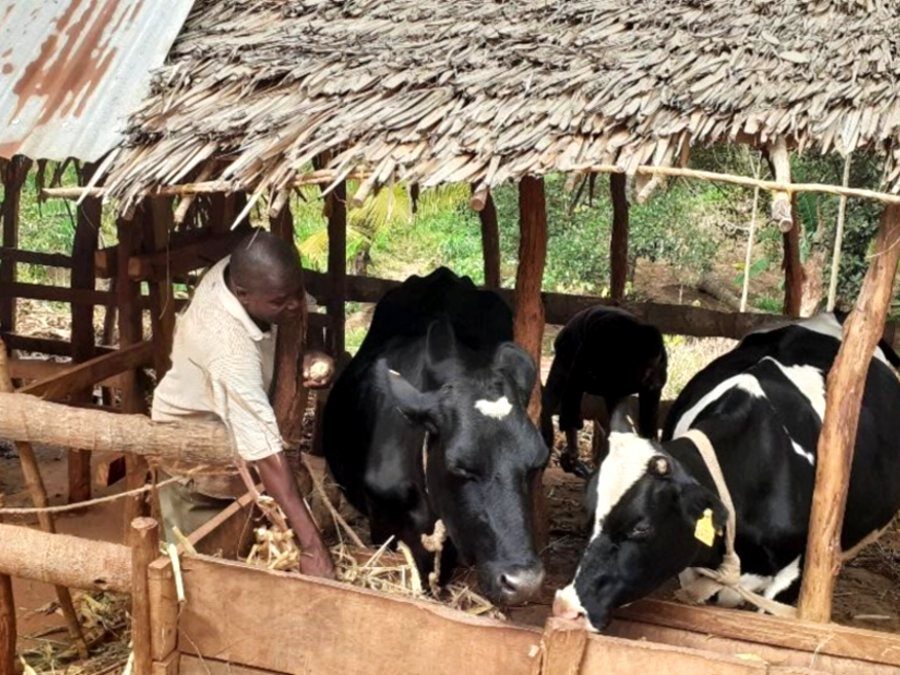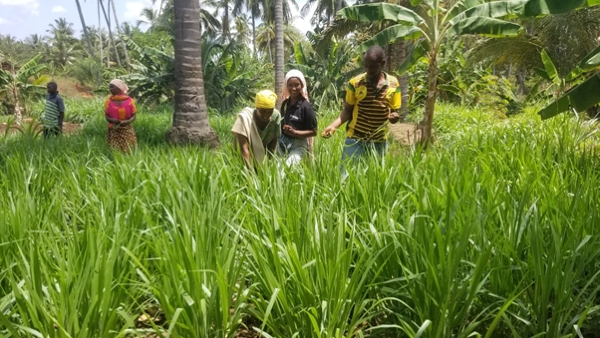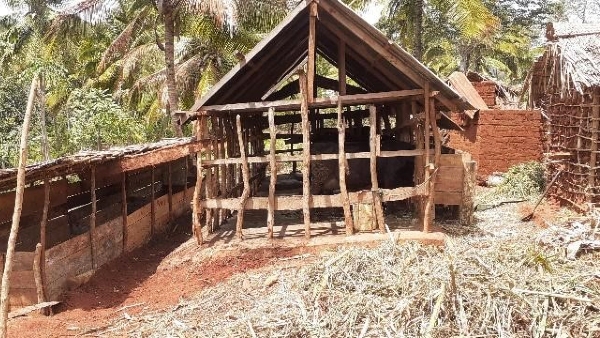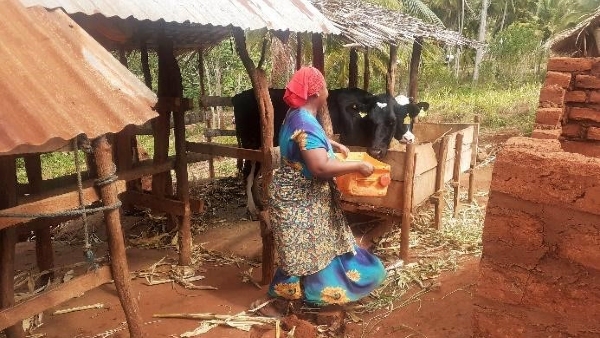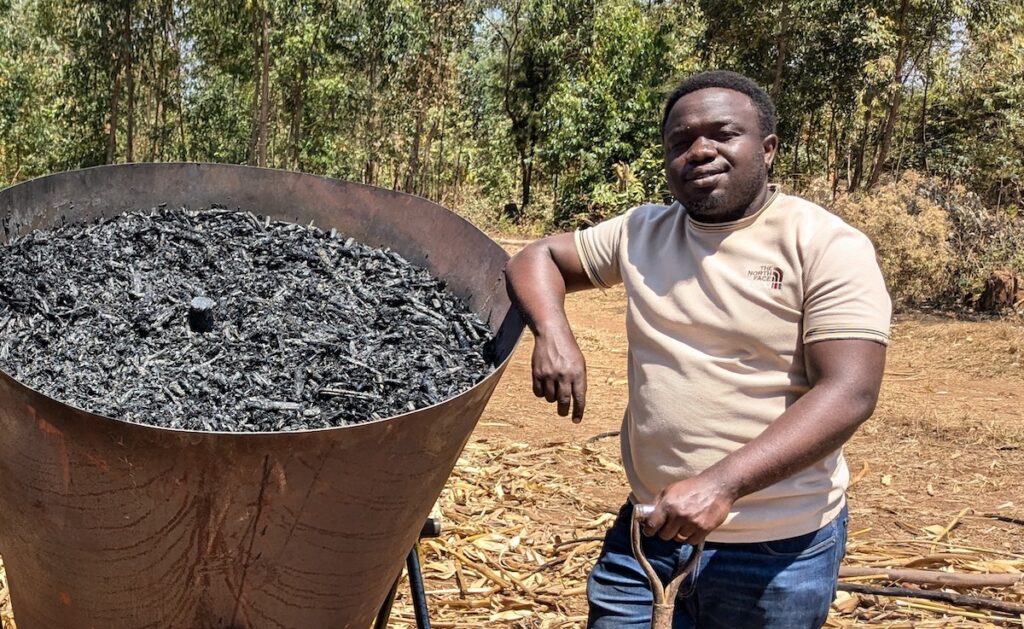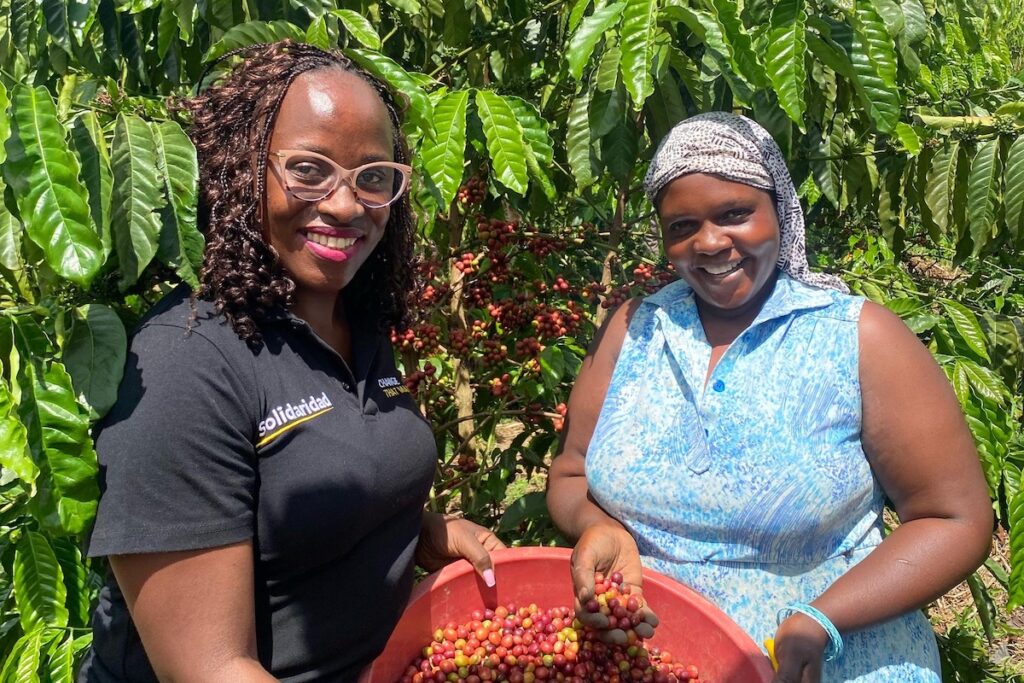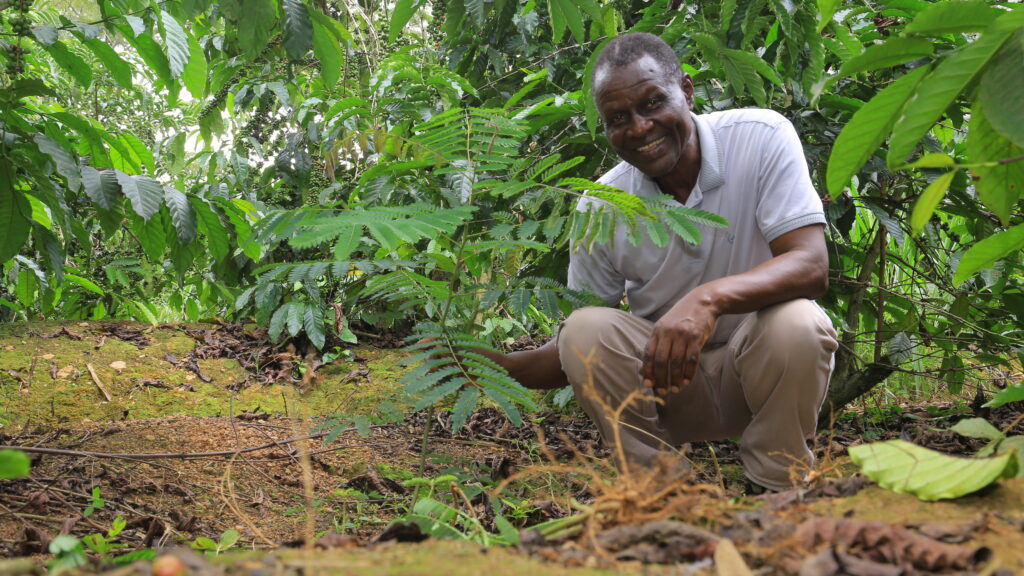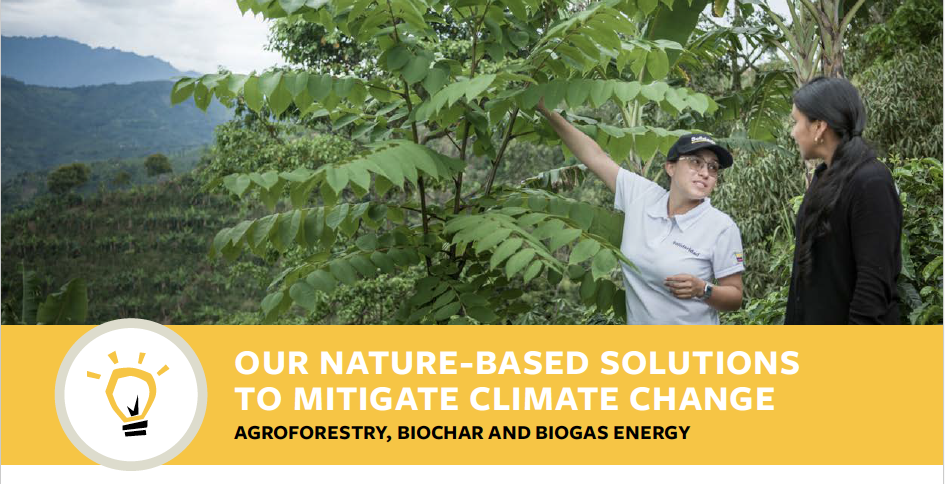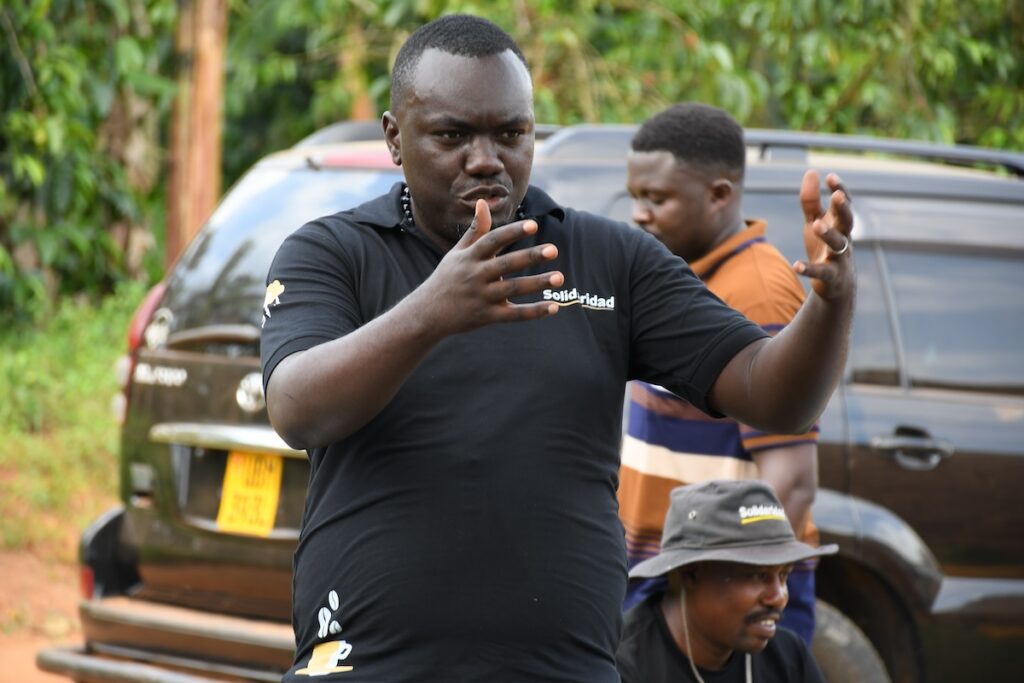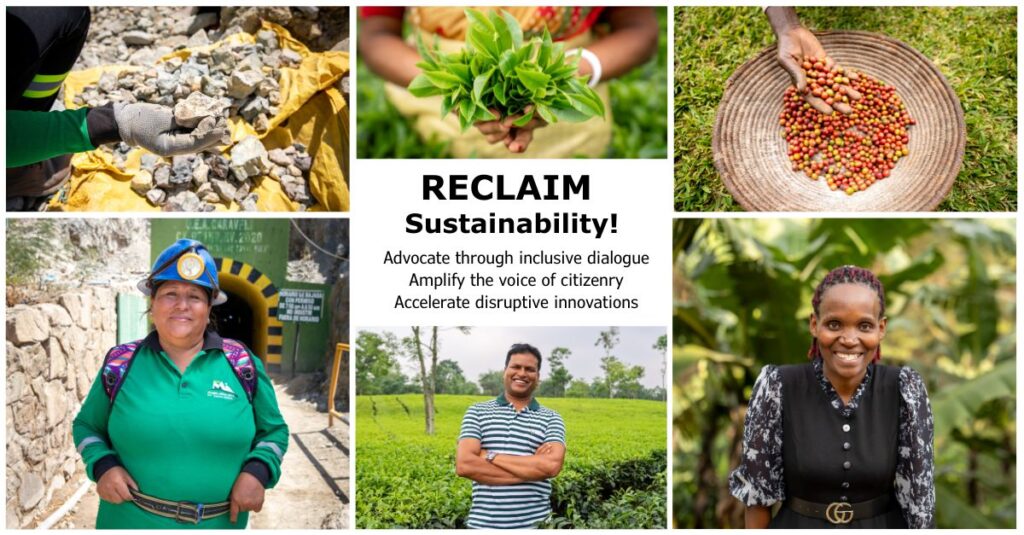Dairy smallholder Hamisi Kumba Alawi tends to his cows.
Funded by the Achmea Foundation, Dairy 2025 aims to double milk production and income for about 6,000 smallholder dairy farmers in the Tanga region, Tanzania, and contribute to a more sustainable and climate-smart dairy sector by 2025.
Bringing services closer to farmers
Between 2019 and 2021, Solidaridad reached 2,034 dairy farmers who received training, extension services and routine progress monitoring on good animal husbandry practices such as formulation of homemade rations, fodder farming, storage and conservation, record keeping, animal housing and hygiene, and calf rearing.
The Dairy 2025 project adopted a three-tier training model to transfer knowledge and practical skills to the farmers, including a group of 45 lead or promoter farmers who established study groups and 15 demonstration plots to train and motivate their peers.
Hamisi Kumba Alawi, from Dulani, Mkinga District is one of more than 2,000 smallholders that have benefitted from the training provided by Dairy 2025. He participated in group learning visits organized by the project, which enabled him to receive training and expert guidance on good dairy management practices and equipped him with practical knowledge and skills.
As a lead farmer, I also got an opportunity to host exchange visits on my farm to share my knowledge. To date, I have trained 15 dairy farmers within my community.
Hamisi Kumba Alawi, dairy smallholder
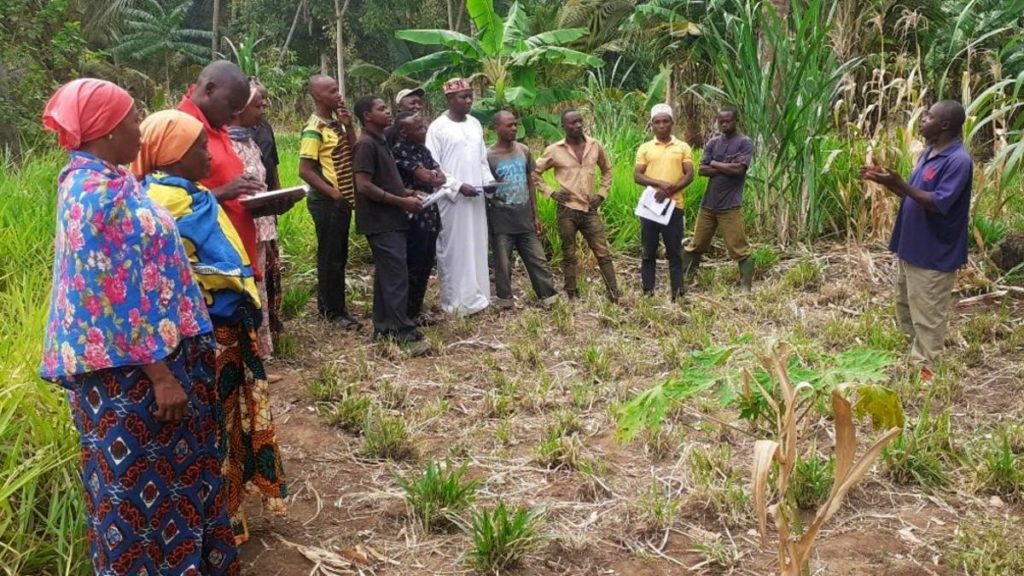
Promoting business skills
Through the Dairy 2025 project, Solidaridad trained and supported 200 farmers to develop and track farm development plans. The plans outlined short- and long-term goals, as well as strategic activities for achieving the goals. Many farmers set herd expansion, increased milk production and income as their top goals. Project staff promoted planning to improve record-keeping and income versus expenditure management to provide a basis for investment planning and improve farmers’ access to finance.
In 2019, Hamisi only had one cow and one calf and was collecting nine litres of milk per day.
Farm development planning has enabled me to increase my cow’s milk production to an average of 55 litres per day. The dairy hub also linked me to Tanzania Agriculture Development Bank which offered me two dairy cows on credit. The additional cows increased my daily milk production.
Budding model “Demonstration Farmer”
The Dairy 2025 project established 15 demonstration farms in the Tanga Region. The demonstration farms were hosted by trail-blazing farmers in the communities to provide peer-to-peer training on feed and fodder farming, manure handling, climate-smart farming, among other good practices.
Hamisi participated as a demonstration farmer and gained some benefits from hosting a feed and fodder demonstration plot on his farm.
I now have a reliable source of quality fodder and plan to venture into commercial production of fodder seedlings for sale to other farmers. I am also excited that Solidaridad selected me to host two new demonstration farms to promote proper manure handling and climate-smart dairy farming practices. I look forward to helping many more farmers in my community.
Dairy 2025 results
The project’s 2,034 farmers doubled their milk production from an average of 8 to 16 litres per day. Incomes for the targeted farmers also increased from an average of 2 euros to 4.1 euros between 2019 and 2021. The positive performance was attributed to improved adoption of good practices and access to services and inputs.
Previously, I was collecting 9 litres per day and earning an average of 6,300 Tanzania Shillings per day.* My herd has now increased to four cows which produce an average of 55 litres per day. My income has also increased to 38,500 Tanzania Shillings per day.* My new target is to reach at least 100 liters per day. Thanks to the additional income, I am now saving money to build my family our dream house.
*6,300 Tanzania Shillings (TS) = approx. 2.25 euros; 8,500 TS = approx. 14 euros
Leading by Example – Gender-Inclusive Dairy Farming
Dairy 2025 is an important vehicle that helps reinforce the business case for engaging women in the dairy value chain to drive sustainable livelihoods. The project invested in sensitizing dairy farming households on the importance of involving women in dairy farming, and Solidaridad recorded increased participation of women in both farming and dairy hub management activities.
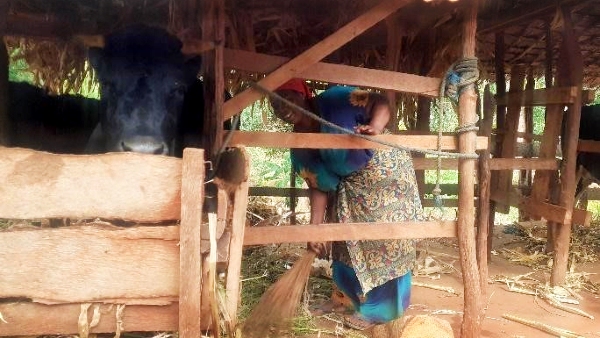
Hamisi’s wife is a registered member of UWADAKI dairy hub and serves as a committee member for the dairy loan component at Tanzania Agriculture Development Bank. She is a community mobilizer, advising other loan beneficiaries on good animal husbandry, and loan repayment. She owns two of the cows on the Alawi farm.
I am glad that she is able to enjoy the fruits of her labor. Earning her own income has motivated her to invest more time and effort into dairy farming. Moreover, working closely has made it possible for us to grow this business as a family. I am confident that my spouse can manage our dairy farm even while I am away.
So far, one other lead farmer in the community has adopted the Alawis’ approach and is now working with his wife in their dairy farming business.
Building a path to success
The dairy value chain has an enormous potential to alleviate poverty and drive rural development in Tanzania. With more than 20% of rural households deriving livelihoods from this value chain, improving productivity is critical for ensuring income and nutrition security for rural households. The key to unlocking the sector’s potential lies in putting smallholder farmers at the heart of development efforts.
To this end, Solidaridad continues to collaborate with stakeholders to empower local farmers in Tanzania. Our goal is to build local capacities and strengthen local systems such as dairy hubs, demonstration plots and milk collection centers to foster farmer-focused and farmer-driven sector transformation. For this reason, we continue to invest in enhancing farmers’ dairy business management skills and capacities to enable them to serve as change agents within their communities.

